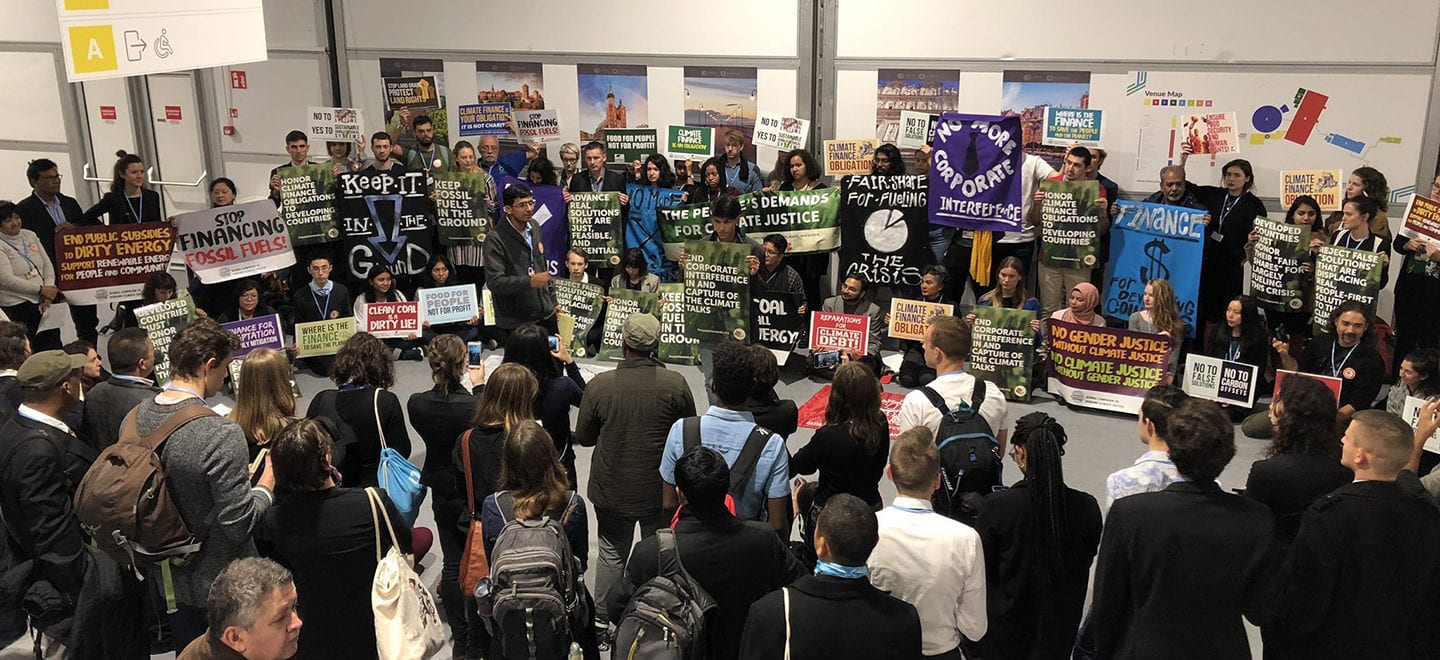The world we live in today is characterized by interlinked global crises: a potentially catastrophic breakdown in our climate; a rise of right-wing nationalism fueled by deepening inequality along class, race, gender, and other divides; an increase in forced displacement and migration. These phenomena exist in a circular relationship, as I have written before:
…increasing climate catastrophe around the world will result in greater social instability and climate-induced migration, giving Trump and the world’s other right-wing demagogues new excuses to build walls, divide people, suppress dissent, fan the flames of nationalist and other hatreds, and build increasingly autocratic regimes that feed on fear and protect a privileged few over everything else.
But climate catastrophe is not the main cause of rising nationalist and even fascist sentiment – rather, it exacerbates an existing trend. Solving the climate crisis by itself does not necessarily guarantee a retreat from ugly right-wing nationalism. Indeed, the “Yellow Vests” protests in Paris demonstrate very clearly that the wrong kinds of climate policies – policies that seek to reduce emissions without taking into account economic and social justice – are no solutions at all, and will invite backlash rather than sympathy.
Here in Poland, as governments meet to discuss how the Paris Agreement on climate change will be implemented, ActionAid and over 200 other organizations have released a new report, After Paris: Inequality, Fair Shares, and the Climate Emergency. This report is a refresh of a study we’ve done on an annual basis since the Paris negotiations in 2015, analyzing how much climate action each country must undertake in a world in which the costs and opportunities of such action are shared fairly between countries.
New this year in our report is an analysis of inequality within, not just between, countries. While we have long advocated that rich countries must take greater and faster action than poor countries, we also believe that at the national level, the burden of climate action must not fall on the backs of people experiencing poverty within each country – including in rich countries. Such an outcome is both unjust and, as we are now seeing in France, politically untenable.
At the international level, the global climate regime will collapse unless countries believe other countries are acting in good faith and taking on their “fair share” of action – that is, unless the overall framework is an equitable one. Because climate action at a sufficient scale requires unprecedented international cooperation, ignoring issues of equity undermines trust in the entire global climate process – trust that is essential to making the process work at all.
Similarly, at the national level, climate policies will fail unless they address issues of economic and social inequality. Ignoring or exacerbating such inequalities will invite backlash as people understandably prioritize their economic and social welfare over the seemingly longer-term issue of stabilizing the global climate.
Thankfully, some politicians – even in the backwards political environment that is the United States under climate-denying Republicans and the Trump administration – are beginning to recognize this truth. After the 2018 elections that saw Democrats take 40 new seats in the House of Representatives, 22 members of Congress have endorsed a process to create a “Green New Deal” policy platform that, while not perfect, would be the most far-reaching climate legislation ever considered in the U.S., by a long shot. Importantly, the Green New Deal as currently proposed puts equity and justice at its center, recognizing that to succeed it must “make prosperity, wealth and economic security available to everyone participating in the transformation.”
About a thousand activists will descend on DC today to urge the Democrats to move forward on the Green New Deal, laying the groundwork for the kind of radical U.S. climate action the world desperately needs and has never seen before. This incredible energy is just the start of the national debate needed to make an adequate global response to climate change – one that actually fulfills the People’s Demands for Climate Justice – a reality.
At every level of climate action – local, national, global – economic and social justice must be at the forefront. It is no overstatement to say that the alternative is a deepening spiral into fascism and climate catastrophe.

